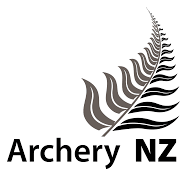The Inclusion of Transwomen in Community National and International Sport and Sports Leadership

At present there is no formal project, just a group of individuals and some sports working independently of each other for the same outcome.
To create a scientifically and legally supported toolkit for organisations to assist them in developing principles, policies and practices around full transgender inclusion.
To create a scientifically and legally supported toolkit for organisations to enable them to develop policies and practices that will facilitate full transgender athlete inclusion in competitive sport.
To create a toolkit for organisations to support them in developing policies and practices around transgender inclusion in sports leadership, governance and operational management.
What is the purpose of the project?
Genesis:
To enable the safe inclusion of transwomen in community, national and international sport and sports leadership.
Aims:
- To facilitate, educate and enable sporting organisations to better understand a kaupapa of inclusion that incorporates transwomen in all facets of their operation;
- To assist sporting bodies as they work towards providing conceptually sound and physically safe environments for transgender women at all levels;
- To rationally and respectfully promote the inclusion of transgender women in sport.
Critical Success Factors:
- The opening of respectful dialogue with sports governance, leadership and codes with a view to enabling them to equip themselves for a transgender-inclusive future, this discourse to include funding bodies;
- The establishment of a set of principles of inclusion;
- The identification of engaged transgender athletes;
- A symposium for engaged parties;
- A shared understanding of the need for safety and for guidelines for transgender athlete participation.
What were the enablers that proved successful in your project?
The main issues faced in engaging in this space are misinformation, a simplistic understanding of the issues, the level of aggression of the gender critical, trans-exclusionary sector and a large degree of fundamentalist bigotry.
The productive dialogue is taking place in boardrooms but the ‘noise’ is happening on social media and this is affecting the speed of decision-making even at the highest level. This is a major disconnect.
There is a significant gap between a connection with, and understanding of, the existing knowledge-base and the cultural perceptions of our sports thought-leaders who are often fearful of political pushback and anticipated public opprobrium.
This a major exercise and the engagement of heroes and champions is critical.
These exist and, once the BBMRR legislation currently before the New Zealand Parliament is determined one way or another, these people and organisations can be better engaged.
A further challenge is confusion regarding where non-binary athletes fit in the model.
Many of the challenges come from the calculated spread of emotive misinformation and, for those of us working in this area, this is a rabbit-hole it’s easy to get dragged into.
The attacks on trans activists are ongoing and vicious an difficult to deal with.
What impact did your project have?
This project is far from complete.
There have been a number of significant changes internationally and in some jurisdictions.
Transwomen have been able to compete at the Olympics since 2003 but the criteria have been regularly varied and adapted and this has caused confusion. It has taken until the recent Tokyo Olympiad for a transwoman to be selected to compete.
A Canadian non-binary footballer also participated.
In Aotearoa there have been significant advances with some sports mostly at the community level where transwomen compete mostly without issue. It’s worth noting that, contrary to popular belief, there is no danger of transwomen taking over women’s sport. In a recent US survey 0.06% of the population identified as transgender so we are a very small percentage of the population..
Good work has been done in some contact sports - karate, taekwondo - driven mostly by transwomen wanting to participate and their NSO’s being supportive.
Major sports internationally are often at odds with each other - rugby - especially when it comes to transwomen competing. We are hampered by simplistic misogyny - ‘man big and strong, women small and weak - and transwoman really man’.
This is a human rights/human dignity issue.
What were the outcomes for women?
A small number of ‘out’ New Zealand transwomen have competed internationally - in weightlifting and karate. In karate the athlete competed without incident. The weightlifter remains a controversial figure despite complying with the selection policy requirements.
This is still a seriously polarising issue, for both adminstrators and some cisgender athletes. It is equally so for many politicians attempting to address the equity and human rights issues.
Transwomen are among the most discriminated groups in the world with transwomen of colour even more so. This is the primary reason whi safety is always emphasised.
The most exciting outcome is around those soports that have become inclusive of transwomen. Once the parrticipant becomes engaged in the sport any pseudo-political issue has gone away. Inclusion is incredibly powerful.
Many sporting bodies have developed Member Protection Policies as a starting point for inclusion and these are increasingly supported by gender equity policies that included transwomen.





















